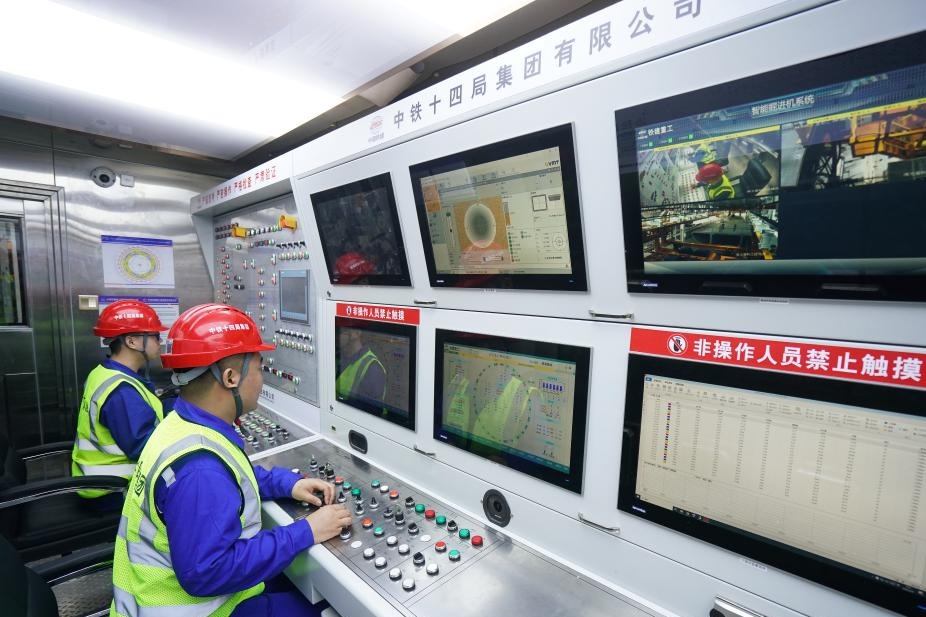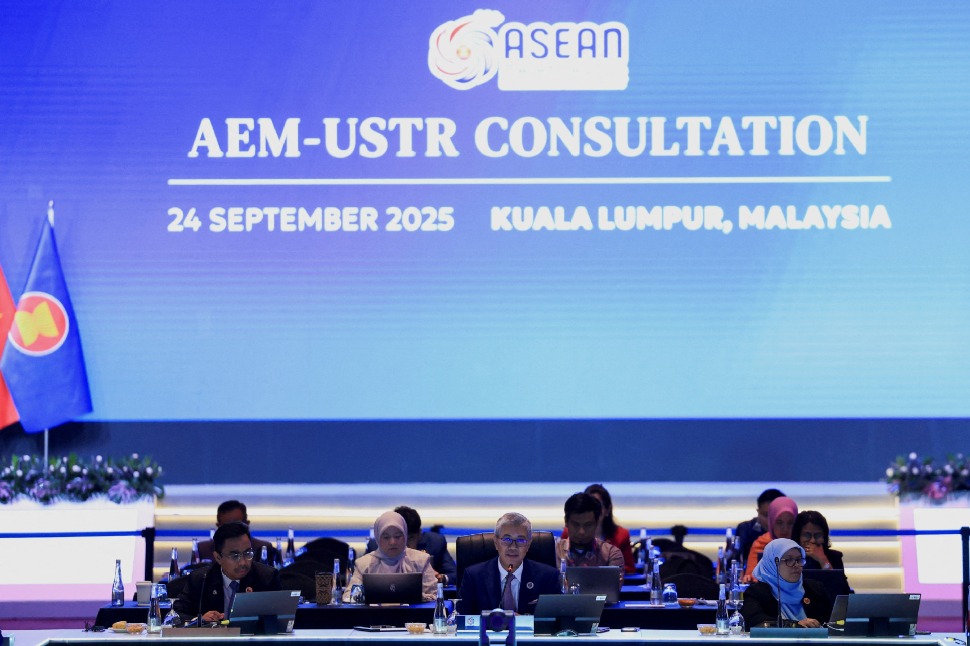'Decoupling' ignores necessity of global collaboration


When meeting with visiting US Secretary of State Antony Blinken, whose high-profile visit to China was expected to make a positive contribution to stabilizing China-US relations, President Xi Jinping stressed that state-to-state interactions "should always be based on mutual respect and sincerity".
For years, the United States and China have been embroiled in conflicts over trade, technology and geopolitics. Recent events have shown the escalating tensions between the two nations, as well as the contentious concept of "decoupling" the two economies by disconnecting trade, investment and technology ties.
Blinken, in his news conference held after the meeting, gave the assurance that the US does not seek to decouple from China, saying that to do so would be "disastrous". Some US officials and pundits, however, believe that decoupling is a viable strategy for countering the growing influence of China while safeguarding US interests. They are mistaken. Decoupling would be a reckless, ill-conceived, extensively flawed approach that would have a negative impact on everyone.
One of the primary arguments for decoupling is that it would protect US intellectual property and national security. However, this ridiculous but widely held argument neglects the benefits of technical interdependence with China, as the country offers a substantial and expanding market, an abundance of talent and expertise, and a strong research and development capability. These advantages have already been leveraged by some US-based corporations to boost innovation and competitiveness in a variety of industries, including portable electronics, automobiles and semiconductors.
Apple, for example, relies on China for both its supply chain and sales, with the country accounting for more than 20 percent of its global revenue. Tesla has inaugurated its Shanghai Gigafactory, which will serve as a significant source of revenue and growth for the electric vehicle manufacturer. Qualcomm appears to have expanded its engagement and collaboration with Chinese enterprises to develop and implement 5G technology, allowing it to preserve its global leadership position in wireless semiconductors.
Instead of distancing and isolating themselves from China's technology ecosystem, US corporations can benefit from collaboration and engagement. "The interests of the United States and China are intertwined like conjoined twins," Tesla CEO Elon Musk remarked on his recent visit to China. In addition to denying US businesses access to China's market, talent and research and development, decoupling would also expose those businesses to the expenses and risks associated with fragmentation, such as increased manufacturing costs, less-favorable economies of scale and limited interoperability.
Some perceive decoupling as an opportunity to fortify US leadership and values by unifying "like-minded democracies" against China. However, this approach ignores the necessity of global collaboration on shared concerns that transcend ideological and geographical boundaries, such as climate change, pandemic response and nuclear nonproliferation.
Such concerns affect everyone and necessitate collaboration, communication and compromise.
In the past, US-China cooperation assisted in the resolution of global issues concerning the Paris Agreement on climate change, the World Health Organization and the Iran nuclear deal. Decoupling would complicate future collaboration on these and other issues. It would also alienate US allies and partners that don't wish to pick sides. The world wants to see the US and China cooperate on mutual interests while amicably addressing their differences.
Some have argued that decoupling would deter what Western officials call "Chinese aggression "by demonstrating strength and resolution. This erroneous argument dismisses the potential risks of escalating tensions and mistrust between the US and China.
In recent years, moves toward decoupling have fueled enmity and suspicion between the two nations in fields such as trade, technology, human rights and security. Chinese merchandise and enterprises have been subject to tariffs, penalties and export bans as a result of allegations of illicit trade practices and concerns about national security. In response, China has enacted its own tariffs, sanctions and boycotts in addition to taking actions in the South China Sea, the Taiwan Strait and the Hong Kong Special Administrative Region.
Such behavior from the US has contributed to the likelihood of conflict and instability in the region and beyond. It has additionally compromised and jeopardized the crisis management and communication procedures that would normally be used to prevent or resolve conflicts. Decoupling would not only isolate the US and China from each other, but would also divide the world into antagonistic blocs, creating a zero-sum game with minimal opportunity for cooperation or compromise.
Given the growing competitiveness and divergence between the US and China, decoupling is considered by certain individuals as inevitable and unavoidable. This disregards the realities of globalization and interdependence, rendering decoupling impracticable and unsustainable.
Decoupling would be a complicated and lengthy procedure. It would entail deciphering decades of complex and diverse global supply networks, markets and institutions. It also would increase the possibility of stirring up confrontation, resistance and condemnation among enterprises, consumers and governments all over the world that are dependent on both the US and China for trade, investment and technology.
Numerous US corporations have established significant investments and sizable operations in China and are reliant on its labor force, resources and market for their operations. Correspondingly, various Chinese businesses have profited from US financing, ingenuity and technology.
Furthermore, many nations are reluctant to cut ties with either the US or China, since they have mutually advantageous economic and strategic interests. Decoupling would disrupt linkages and impose immense costs on all parties involved.
Decoupling of the US and China would stifle innovation, degrade global collaboration, increase the possibility of conflict and deny the realities of interdependence. Instead of continuing down this detrimental path, the US should come to its senses and adopt a more pragmatic approach.
As former US secretary of state Henry Kissinger, a realist who played a prominent role in US foreign policy between 1969 and 1977 and is now 100 years old, said in 2019: "We are in a difficult period now. I am confident the leaders on both sides (US and China) will realize the future of the world depends on the two sides working out solutions and managing the inevitable difficulties."
The author is a member of the Legislative Council of the Hong Kong Special Administrative Region, founder of Save HK and a member of the Central Committee of the New People's Party of the Hong Kong SAR. The views do not necessarily reflect those of China Daily.

































